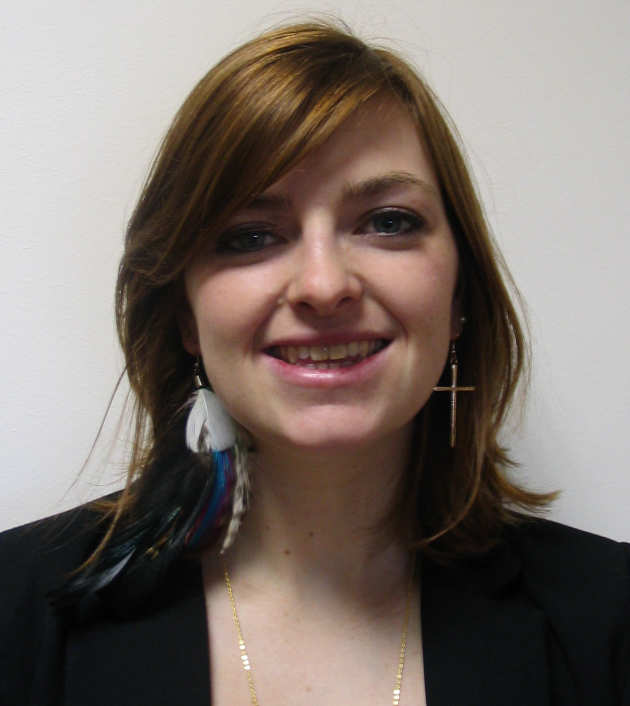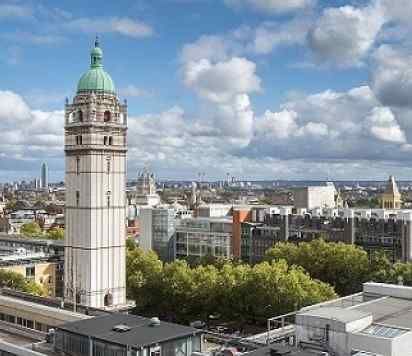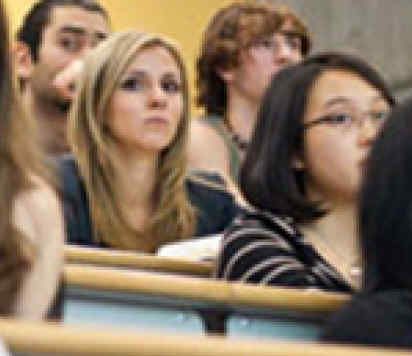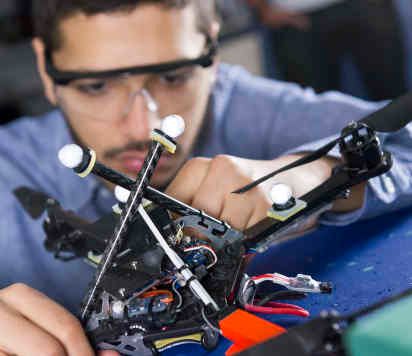 1. Why did you decide to study an MSc in Advanced Computational Methods for Aeronautics at the Imperial College: Department of Aeronautics?
1. Why did you decide to study an MSc in Advanced Computational Methods for Aeronautics at the Imperial College: Department of Aeronautics?
Imperial College's reputation is known worldwide. As one of the leading universities, I was expecting the facilities to be great and the classes to be challenging.
This was the main reason of my application. Moreover, studying abroad is a real personal enrichment since it widens one's mind.
2. What makes the MSc in Advanced Computational Methods for Aeronautics programme in Department of Aeronautics unique?
The melting pot existing amongst the student cohort makes this Master's unique.
The different backgrounds of the students enables us to work together whilst gaining more than just academic skills.
Mary-Caroline Carlin
Programme: MSc in Advanced Computational Methods for Aeronautics
Mode of Study: Full-time
Entry Year: 2012
Nationality: French
Undergraduate: Diplôme D'ingénieur Fluid Mechanics and Hydraulics
Institution: ENSEEIHT – INP France
Years: 2010-2012
Work Experience: Aerodynamics Research Centre, Arlington, Texas
3. What do you think of the Department’s facilities?
Since each classroom is very well equipped - video projectors, microphones - it is a real pleasure to attend a lecture. Given that the our Master's is computer-based, the Master's common room is equipped with dozens computers and is always busy and well appreciated.
Unfortunately, we have not yet had the chance to apply our knowledge experimentally - in the wind tunnel for instance – but I look forward to doing this this during our projects.
4. How would you describe the community/culture at Imperial?
Contrary to what one could expect from a high ranked university, a true community spirit exists at Imperial. Most of the Master's students enjoy working together and helping each other out, without according importance to one's nationality.
Besides this, given the number of societies offered by the Imperial, one can easily find activities that suits him/her, in order to have a balanced lifestyle. So, in one word, I would sum up the culture at Imperial as diverse.
5. Which courses or subjects have you enjoyed most so far?
So far, I really enjoyed the Separated Flow and Fluid-Structure Interaction. It was one of the hardest courses I followed. Therefore, it required full attention and challenged us throughout the lectures. But it felt really good when, by the end of the day, I was able to fully understand the concepts displayed.
6. Have there been any seminars or events at the Department that have been useful in developing your skills and knowledge?
Being in my last year of studies, I have attended several events related to the recruitment. Indeed, thanks to Imperial, I went to events led by companies like British Petrol which gave me advice on the recruitment process.
7. Describe a typical day as a Department of Aeronautics MSc student.
Every day I cycle to Imperial in order to be there just before 10am. After two hours of lectures, I enjoy lunch with some classmates. Usually we end our lunch break by working and discussing our opinions on ongoing projects. We attend several hours of lectures. I end my afternoon by training for two hours and then head back home.
8. Describe your experience of being on the MSc in Advanced Computational Methods programme. How is it helping to shape your future goals and career aspirations?
As Imperial College is a major school in the UK, a lot of companies are interested in recruiting its students. Hence a lot of presentations and forums are held, providing us with further information and the opportunity to ask questions. So now the doubts I had about my career no longer exist.
9. How has the programme helped you to develop your skills?
This Master's requires a lot of personal work and consequently a good sense of organisation. Given all the opportunities London offers, if is very easy to get carried away. But with some sense of commitment and focus everything could be done on time. So this Master's programme has definitely enhanced my organisational and concentration skills.
10. Moving away from study, what has been your experience of the social life at Imperial and in London?
What is great about Imperial is that whatever passion you have, a society exists! I wanted to start a new sport, and it was easily done, given that societies welcome every level. Moreover, a lot of activities are organised on a regular basis – like the all-night movies – so the least I can say is that one never gets bored at Imperial.
11. Is there anything else you’d like to add?
My advice to any prospective student: go for it. It is a great experience!


